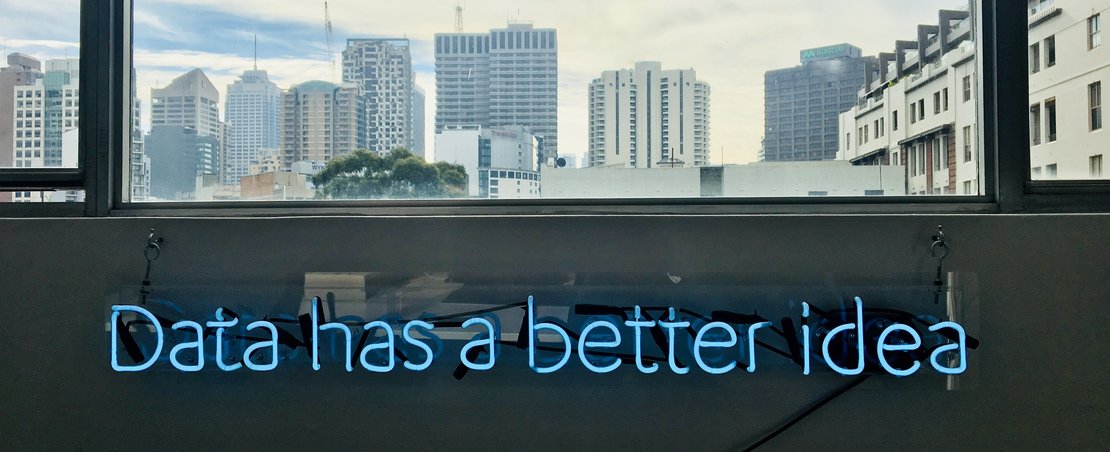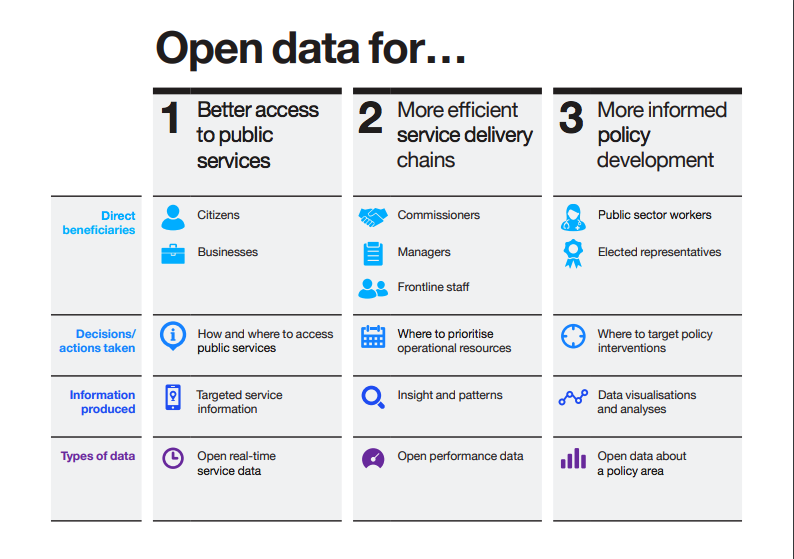
Local and central governments can use data to develop innovative public services that improve the lives of citizens. But there are many technical, organisational and cultural barriers which can make it difficult for service designers to use data effectively
To address this, we have been working on ways to improve understanding around how to implement data-enabled services. As part of the research project, we are exploring current best practice and developing learning tools with public sector partners.
Through talking to local governments and service designers, we have identified a range of common barriers to using data to create new services or to improve existing services. To overcome these barriers there is a need for:
- engagement and buy-in from senior management
- a general understanding of what open data is so that open data can be used when designing services
- easily findable and accessible open datasets
- clarity about who is accountable for maintaining open datasets
- better cross-department/team working with more defined channels of communication
- evidence about the value and impact of open data initiatives within other councils.
Toolkit: creating a business case for service design
To address these user needs we are creating a toolkit to support local governments make better use of data.
The toolkit aims to help local government teams and service designers develop a business case for better use of data. It will focus on the three types of open data public service identified in our New Service Delivery Models report:
- Open data for better access to public services
- Open data for more efficient service delivery chains
- Open data for more informed public policy development

The four stages of business case development
The toolkit will pull together relevant ODI – and external – tools and present them against the four stages of case development:
- Goals: What are your organisation’s goals? What tangible benefits could your organisation deliver through better use of data?
- Data use: How is data used now and how could it be used better?
- Demonstrating value: How can you show value for your organisation?
- Championing open: How can you advocate for the use of open data in your service design?
Mapping user needs
Our hypothesis is that by categorising practical tools within a business case toolkit, we can map the tools to user needs, making it easier for service design and delivery teams in local governments to make a strong business case. In turn, this will:
- raise awareness of the benefits of using data in public services
- enable those designing public services to advocate for using open data in their design
- enable those designing public services to implement the use of open and shared data in public services.
The overarching goal is to promote more efficient public service delivery and encourage more organisations (eg private sector and civil society organisations) to be involved in the delivery of public services. This will ultimately contribute to cost savings for the public sector, providing a better service for citizens and growing the economy.
Photo by Franki Chamaki on Unsplash
Workshops: November 2018
We will be running a series of workshops to test our tools in mid-November (2018). Sign up below to register your interest.
Sign up to register interest for the workshops, to be held in mid-November in central London